Abstract
In a follow up study of 57 patients who had sustained a severe closed head injury, 84% still reported some residual deficit in their psychological functioning after two years, with forgetfulness being the most common complaint. Expressing the severity of the injury in terms of both the duration of post-traumatic amnesia (PTA) and the extent to which previous work could be resumed (RTW), principal components analyses showed that the occurrence of "impairment complaints"--viz forgetfulness, slowness, poor concentration and inability to divide attention over two simultaneous activities--was positively related to severity. The other complaints, which in the main could be labelled as "intolerances" were not. The same pattern was found when the analyses were based on deficits of the patients as they were reported by relatives. Severity was not appreciably related to the total number of complaints. The correlation between PTA and RTW was 0.52, indicating that with longer PTA duration, work is likely to be resumed at a lower level, or not at all. Though Russell's cut-off of one week PTA to differentiate between severe and very severe concussion appeared useful, in the present study a further cut-off point at the unlucky number of 13 days was considered.
Full text
PDF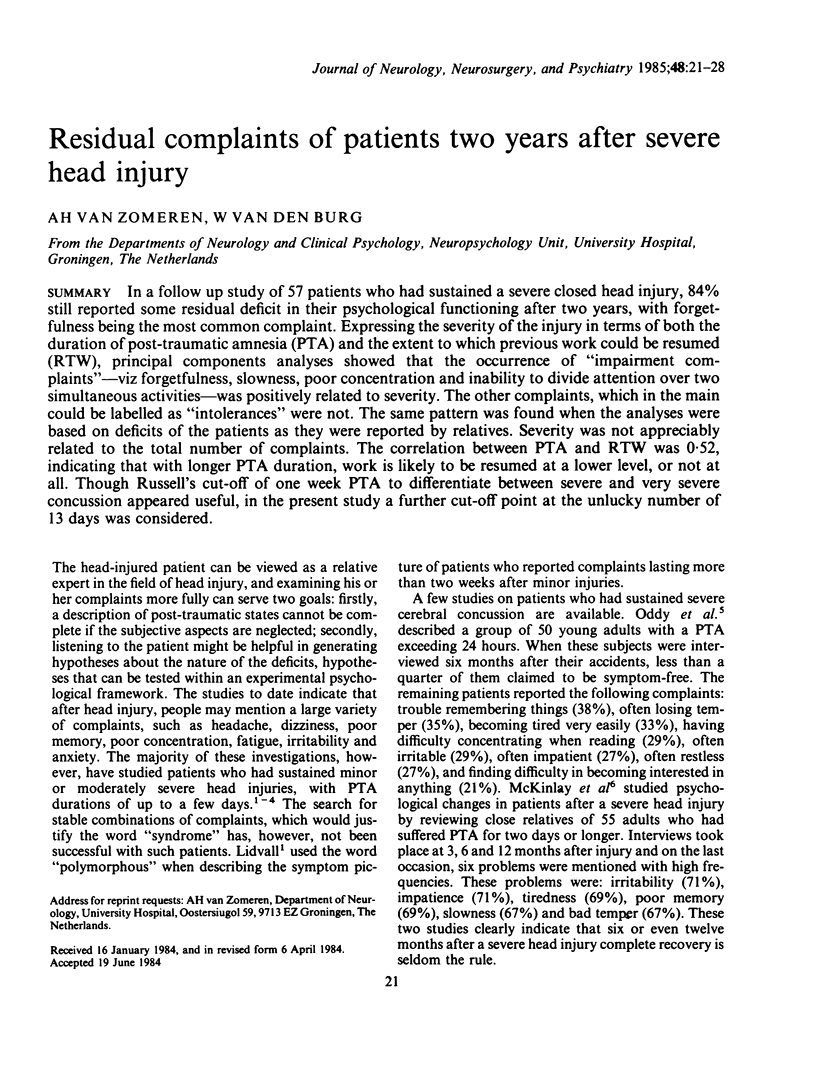
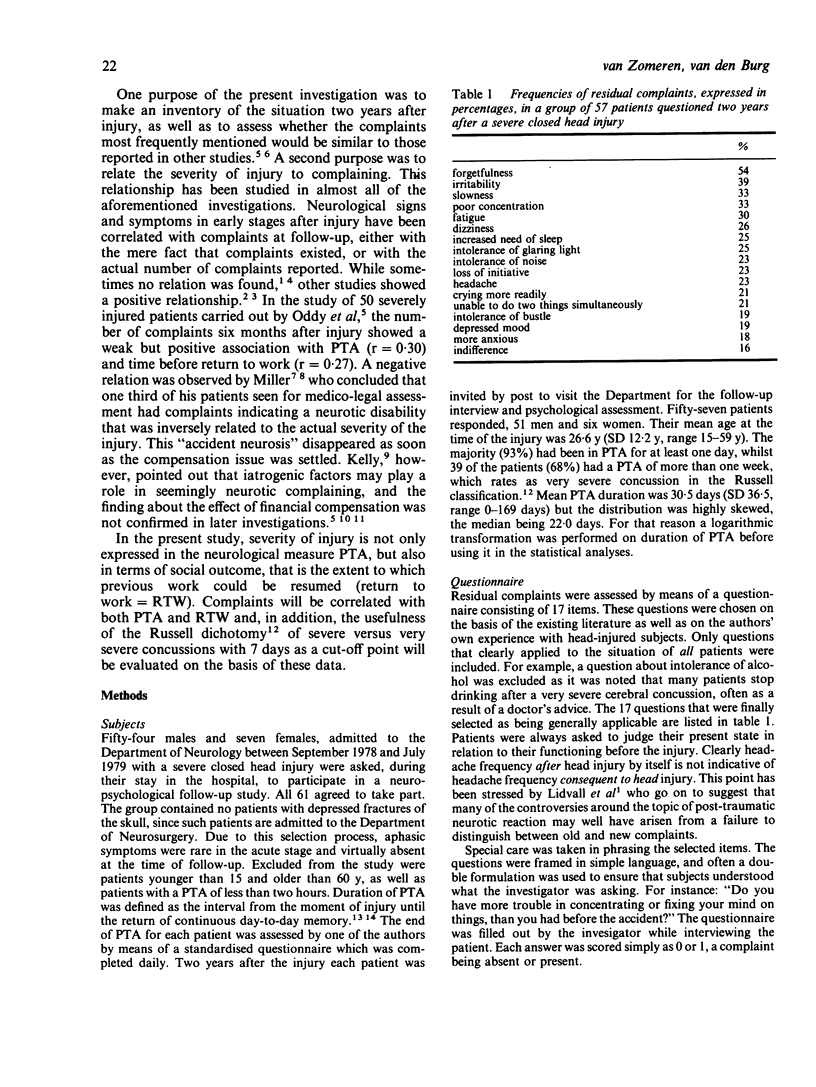
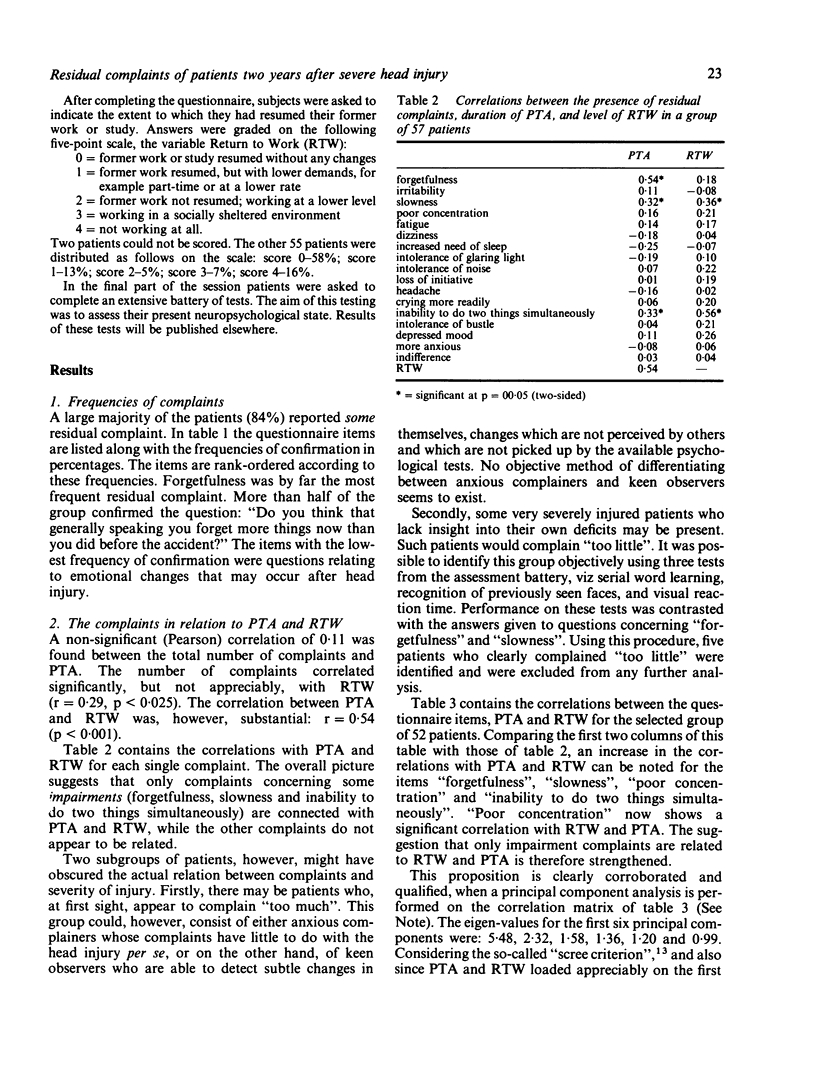
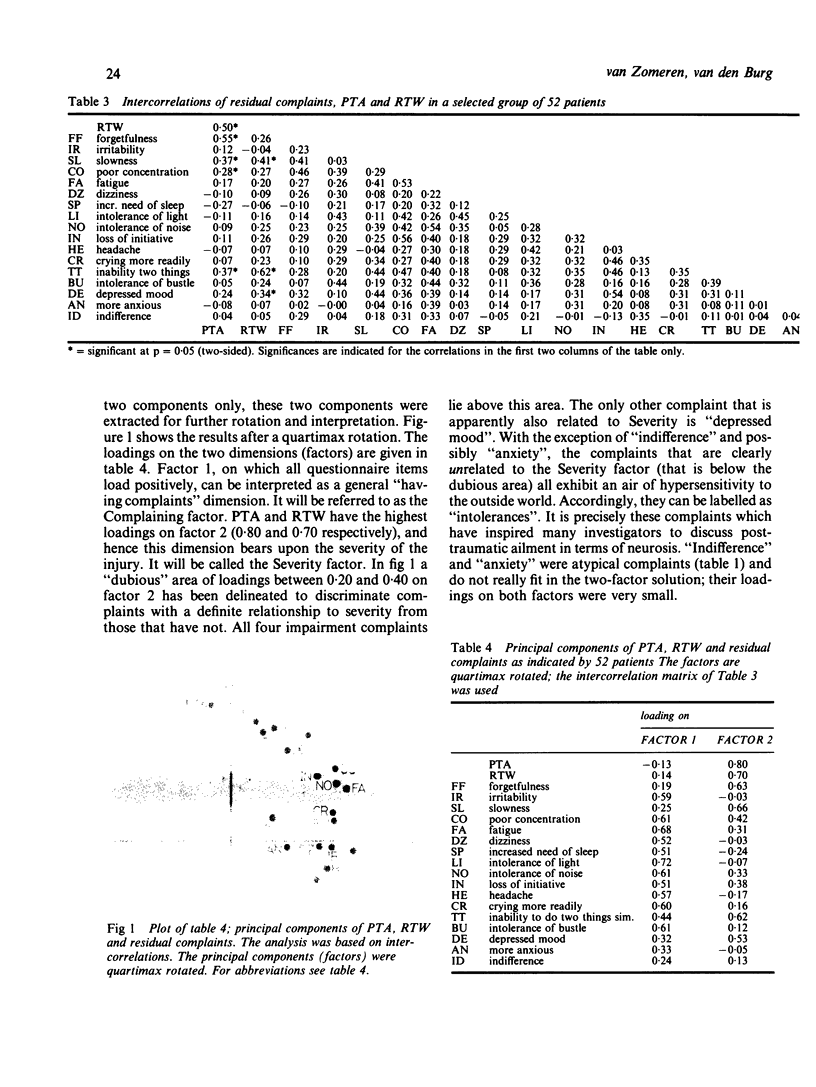
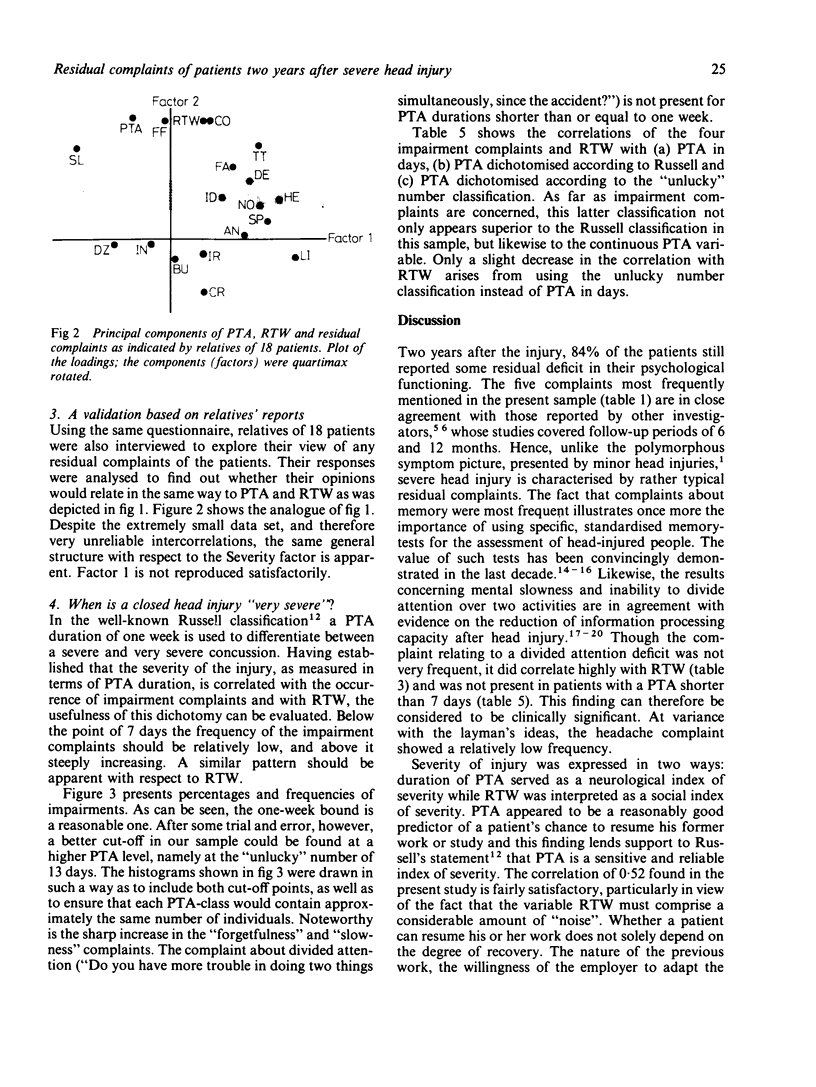
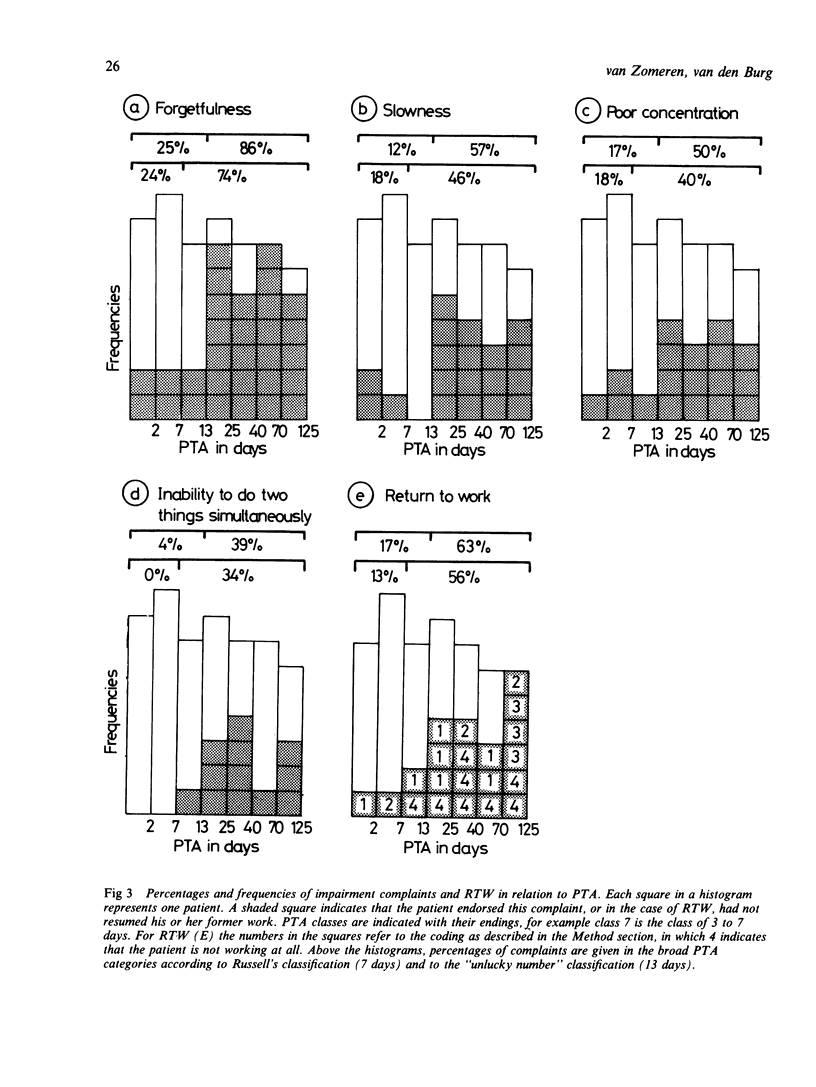
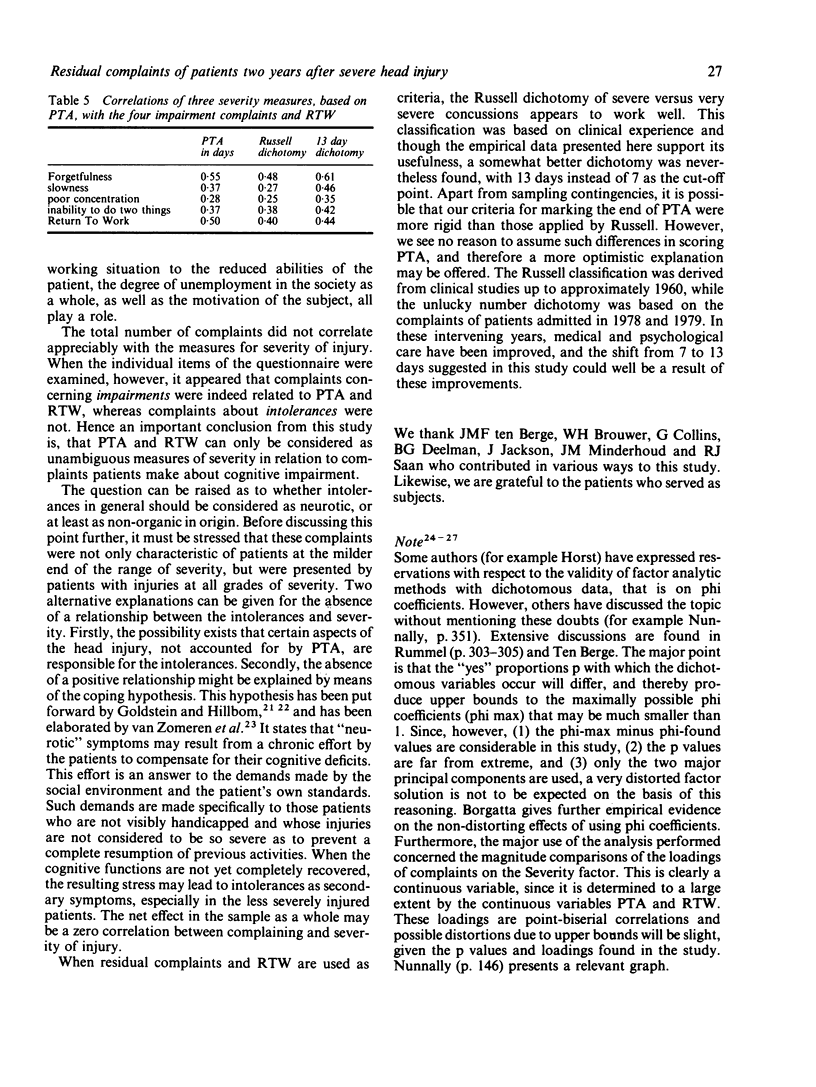
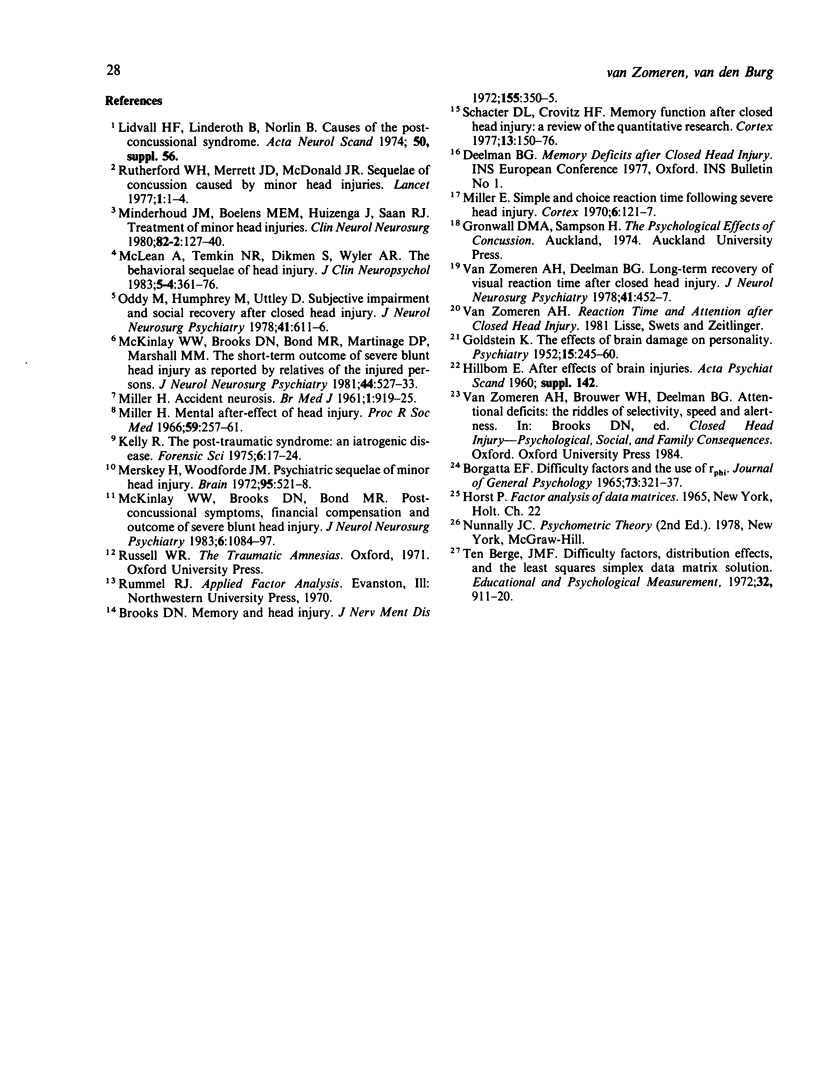
Images in this article
Selected References
These references are in PubMed. This may not be the complete list of references from this article.
- Borgatta E. F. Difficulty factors and the use of r-phi. J Gen Psychol. 1965 Oct;73(2D):321–337. doi: 10.1080/00221309.1965.9710728. [DOI] [PubMed] [Google Scholar]
- GOLDSTEIN K. The effect of brain damage on the personality. Psychiatry. 1952 Aug;15(3):245–260. doi: 10.1080/00332747.1952.11022878. [DOI] [PubMed] [Google Scholar]
- Kelly R. The post-traumatic syndrome: an iatrogenic disease. Forensic Sci. 1975 Aug-Oct;6(1-2):17–24. doi: 10.1016/0300-9432(75)90219-8. [DOI] [PubMed] [Google Scholar]
- McKinlay W. W., Brooks D. N., Bond M. R., Martinage D. P., Marshall M. M. The short-term outcome of severe blunt head injury as reported by relatives of the injured persons. J Neurol Neurosurg Psychiatry. 1981 Jun;44(6):527–533. doi: 10.1136/jnnp.44.6.527. [DOI] [PMC free article] [PubMed] [Google Scholar]
- McKinlay W. W., Brooks D. N., Bond M. R. Post-concussional symptoms, financial compensation and outcome of severe blunt head injury. J Neurol Neurosurg Psychiatry. 1983 Dec;46(12):1084–1091. doi: 10.1136/jnnp.46.12.1084. [DOI] [PMC free article] [PubMed] [Google Scholar]
- McLean A., Jr, Temkin N. R., Dikmen S., Wyler A. R. The behavioral sequelae of head injury. J Clin Neuropsychol. 1983 Dec;5(4):361–376. doi: 10.1080/01688638308401185. [DOI] [PubMed] [Google Scholar]
- Merskey H., Woodforde J. M. Psychiatric sequelae of minor head injury. Brain. 1972;95(3):521–528. doi: 10.1093/brain/95.3.521. [DOI] [PubMed] [Google Scholar]
- Miller E. Simple and choice reaction time following severe head injury. Cortex. 1970 Mar;6(1):121–127. doi: 10.1016/s0010-9452(70)80040-5. [DOI] [PubMed] [Google Scholar]
- Miller H. Mental after-effects of head injury. Proc R Soc Med. 1966 Mar;59(3):257–261. doi: 10.1177/003591576605900327. [DOI] [PMC free article] [PubMed] [Google Scholar]
- Minderhoud J. M., Boelens M. E., Huizenga J., Saan R. J. Treatment of minor head injuries. Clin Neurol Neurosurg. 1980;82(2):127–140. doi: 10.1016/0303-8467(80)90007-4. [DOI] [PubMed] [Google Scholar]
- Oddy M., Humphrey M., Uttley D. Subjective impairment and social recovery after closed head injury. J Neurol Neurosurg Psychiatry. 1978 Jul;41(7):611–616. doi: 10.1136/jnnp.41.7.611. [DOI] [PMC free article] [PubMed] [Google Scholar]
- Rutherford W. H. Sequelae of concussion caused by minor head injuries. Lancet. 1977 Jan 1;1(8001):1–4. doi: 10.1016/s0140-6736(77)91649-x. [DOI] [PubMed] [Google Scholar]
- Schacter D. L., Crovitz H. F. Memory function after closed head injury: a review of the quantitative research. Cortex. 1977 Jun;13(2):150–176. doi: 10.1016/s0010-9452(77)80006-3. [DOI] [PubMed] [Google Scholar]
- Van Zomeren A. H., Deelman B. G. Long-term recovery of visual reaction time after closed head injury. J Neurol Neurosurg Psychiatry. 1978 May;41(5):452–457. doi: 10.1136/jnnp.41.5.452. [DOI] [PMC free article] [PubMed] [Google Scholar]




